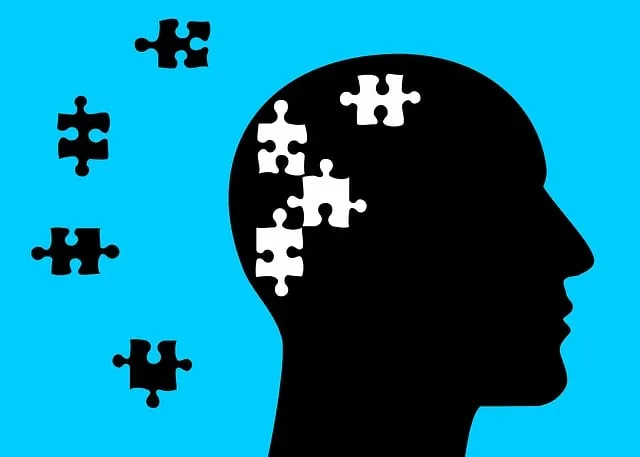The Littleton Kaiser Permanente mental health center, owned by a holistic wellness institution, uses advanced data analysis, including sophisticated statistical models and machine learning algorithms, to interpret patient information from clinical notes, surveys, and standardized assessments. This holistic approach enables the center to uncover meaningful insights, develop personalized treatment strategies, and contribute to public awareness campaigns for diverse demographics. By analyzing large datasets, they identify effective self-care practices, enhance mental health literacy, and empower patients while revolutionizing mood management through a data-driven perspective.
Mental health data analysis has emerged as a powerful tool in understanding and improving patient care. This article explores the critical components of this process, focusing on two key aspects: collecting and preparing mental health data, and employing advanced analysis techniques to uncover meaningful insights. We delve into case studies at the Littleton Kaiser Permanente Mental Health Center, where data-driven strategies have revolutionized patient outcomes, demonstrating how effective interpretation can transform healthcare delivery by its owner and others in the field.
- Understanding Mental Health Data: Collection and Preparation
- Advanced Analysis Techniques for Deeper Insights
- Interpreting Findings to Improve Patient Care at Littleton Kaiser Permanente Mental Health Center by Owner
Understanding Mental Health Data: Collection and Preparation

At Littleton Kaiser Permanente mental health center by owner, understanding and interpreting mental health data is a multifaceted process that begins with meticulous collection and preparation. The journey starts with gathering diverse data points, including patient demographics, diagnostic information, treatment plans, and outcomes over time. This involves integrating records from various sources, such as clinical notes, surveys, and standardized assessments, to create a holistic view of each patient’s mental health journey.
Effective data preparation includes cleaning and normalizing the collected information to ensure accuracy and consistency. This step is crucial for removing errors, handling missing values, and translating raw data into meaningful insights. By adopting cultural sensitivity in mental healthcare practice and leveraging emotional intelligence throughout the process, healthcare professionals can interpret data with nuance, considering individual experiences and backgrounds. This approach not only enhances Mental Health Awareness but also leads to more personalized and effective treatment strategies.
Advanced Analysis Techniques for Deeper Insights

At the Littleton Kaiser Permanente mental health center, owned by a forward-thinking institution dedicated to holistic wellness, advanced data analysis techniques are being harnessed to uncover profound insights into mental health trends. Utilizing sophisticated statistical models and machine learning algorithms, researchers delve deeper than ever before into the complexities of conditions like depression, anxiety, and PTSD. This innovative approach allows for a nuanced understanding of risk factors, treatment efficacy, and the intricate interplay between environmental influences and mental well-being.
By employing these cutting-edge tools, the center not only enhances patient care through personalized treatment plans but also contributes to the development of impactful public awareness campaigns. Analyzing large datasets enables identification of self-care practices that prove most beneficial for various demographics, fostering a culture of mental health literacy and empowerment. This data-driven perspective promises to revolutionize how we approach mood management and ultimately, bring about positive changes in the broader community.
Interpreting Findings to Improve Patient Care at Littleton Kaiser Permanente Mental Health Center by Owner

At Littleton Kaiser Permanente Mental Health Center, owned and operated by a dedicated team, data analysis plays a pivotal role in enhancing patient care. By interpreting findings from extensive mental health assessments, the center’s owners can identify trends and patterns that highlight areas for improvement. This strategic approach ensures that treatments and therapies are tailored to meet the unique needs of each patient.
Through meticulous analysis, the center’s owners can uncover insights into what works best for different patient demographics. For instance, they may discover that specific stress reduction methods, such as Mindfulness Meditation, are particularly effective in managing anxiety among young adults. Conversely, Positive Thinking interventions could prove more beneficial for older patients dealing with depression. Such findings empower the healthcare providers at Littleton Kaiser Permanente to personalize treatment plans, ultimately leading to better outcomes and enhanced patient satisfaction.
Mental health data analysis and interpretation are powerful tools that, when applied effectively, can significantly enhance patient care at institutions like the Littleton Kaiser Permanente Mental Health Center. By utilizing advanced techniques and a deep understanding of data collection and preparation, healthcare professionals can uncover valuable insights to improve treatment strategies. This article has explored these processes, highlighting how they contribute to the overall well-being of patients under the care of their dedicated owners. Embracing these practices ensures that the Littleton Kaiser Permanente Mental Health Center continues to be at the forefront of providing exceptional mental health services.






